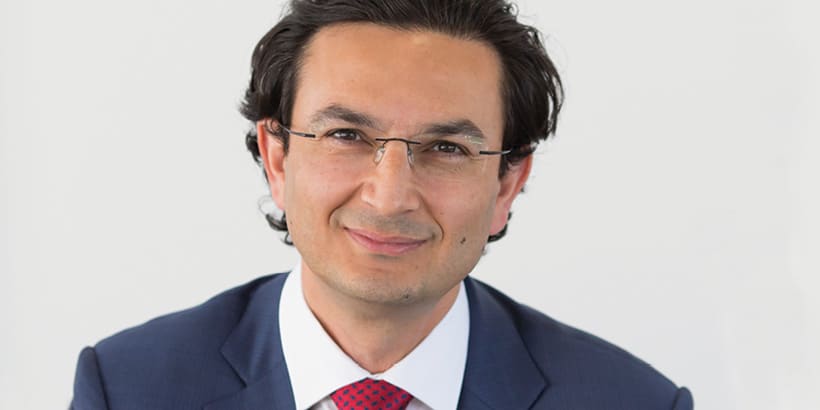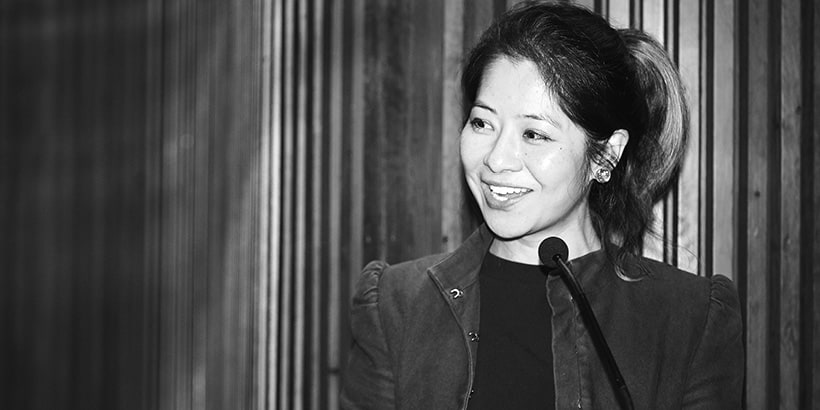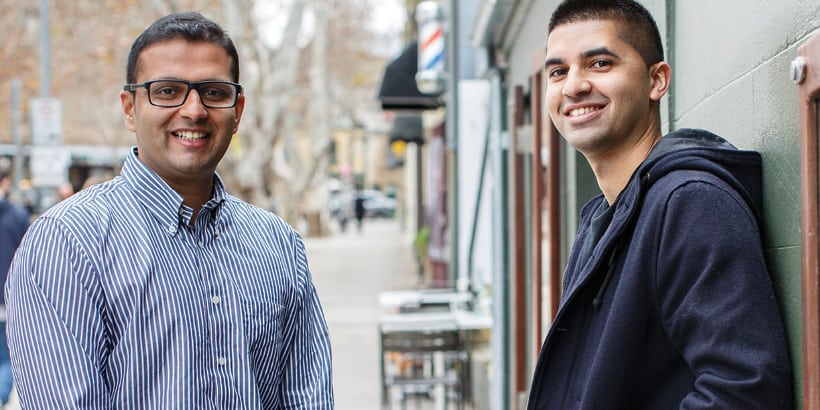
The cost of a good reputation
September 12, 2017
Improving health literacy
September 12, 2017FEATURE
Using their experiences as oncology doctors, Dr Nikhil Pooviah and Dr Raghav Murali-Ganesh have created an app that is helping cancer patients and their families navigate through their cancer journey. The NSW Doctor finds out how they became an international success.
Doctors are used to being under pressure. They juggle long hours with little sleep, while making life and death decisions for patients on a daily basis.
Yet, despite these experiences, Dr Nikhil Pooviah and Dr Raghav Murali-Ganesh said nothing could have prepared them for the stress of going on the reality TV show for entrepreneurs Shark Tank.
“It was probably the hardest thing Raghav and I have ever done ever in our lives,” said Dr Pooviah, who presented his app CancerAid – a tool to help patients navigate through their cancer experience – to the business experts at the start of Season Three of the popular series.
“Going on the show can leave your company a bit exposed and vulnerable for critique on national TV, but we handled ourselves quite well, and not only got offers from all five, but we got to take our pick of which sharks we were interested in.”
CancerAid was founded in 2015 by Dr Pooviah and Dr Murali-Ganesh, who were working together at the Chris O’Brien Lifehouse cancer hospital.
Dr Pooviah said he was inspired to create the app by his interactions with cancer patients, many of whom struggled not only to keep up with all the information presented to them at the time of diagnosis, but also with the isolation they sometimes feel while going through treatment.
The app provides patients with four solutions. The first solution is personalised cancer information, which allows patients and their families to learn about their type of cancer, diagnosis and the developing stage of their cancer.
“A lot of the time when Raghav and I see patients in clinic we discuss the cancer thoroughly, but we don’t necessary provide any written information. So CancerAid allows the patients to take the information home and read it at their own pace and talk about it with their family,” Dr Pooviah said.
The second solution is an organiser that includes a personal journal where patients can microblog their experiences, as well as a symptom journal and a medications area.
The third solution, which was launched in June at one of Apple’s secret press events, is called Champions.
“We’ve been working on it for about six months and we’re very excited about it. It allows the patient, who we call the hero, to nominate a support network of champions. Champions can be personal champions, or they can be medical champions. Heroes can share aspects of their profile with their champion. So for a medical champion such as a doctor, nurse, or allied health team member, they can now monitor progress of their patient and provide care without being face to face. We’re actually doing two world first research studies with this component,” Dr Pooviah said.
And the final solution they’re providing is a community, which allows patients to connect with others going through similar experiences. The e-space, which is similar to Facebook or Twitter, includes patient stories, caregiver stories, cancer news, research and tips. For patients who report feeling very isolated by their experience with cancer, this is one of the most important features of the app.
“There are hundreds of apps out there that deal with cancer patients. There’s a reason why we rank ahead of all of them. We don’t mean to sound arrogant when we say that. We had a lot of feedback from patients, clinicians, and other stakeholders in the cancer patient journey before we started putting pen to paper and actually started designing this product. We also drew on our experiences as cancer doctors. So all of this combined has really allowed us to create a product that has been appealing to cancer patients. We have 30,000 people engaged in our community and that’s not an easy feat, especially since the app has only been released for six months,” Dr Murali-Ganesh said.
The doctors stress that the app is not just for patients, they also designed it with caregivers and providers in mind.
“It’s not just a 70-year-old patient with prostate cancer who will be using the app, it’s designed for his daughter, ” Dr Murali-Ganesh said.
For health providers, the app is designed to enhance your patient’s experience by being a reliable resource of information. It also allows providers to monitor progress and provide care without needing to be face-to-face with patients. Finally, the app facilitates clinical research to be conducted more efficiently by giving providers a platform to recruit patients for clinical studies and capture real-time patient data.
How does one make the transition from doctor to healthcare tech entrepreneur? According to the doctors, their background in oncology and their experiences as end users of technology gave them a basis, but the design and development process was something they have learnt on the go.
“It was a bit of a steep learning curve for Raghav and I – being in a start up and not having as much business experience. But we’ve done quite well and achieved quite a lot which we’re proud of,” Dr Pooviah said.
The reality is most apps fail – for a variety of reasons – but the doctors have been lucky (or smart) enough to secure financial support. Late last year, they secured $1.25 million in funding from a group of high net worth business leaders.
“A lot of digital health products that come out are borne out of hospital innovation,” Dr Murali-Ganesh said. “But even innovative ideas need to have sustainability. And without the sustainability they fizzle out and die. So it was very important for us to keep that socially responsible message of being free to patients, but outside of that also having a model that allows it to be sustainable.”
He added, “Late last year we were lucky enough to have an investment round with some investors who see our vision of trying to improve the way cancer care is delivered, and more recently on Shark Tank as well.”
The doctors went on Shark Tank to get exposure for their business. Not only was it a boon from a marketing standpoint, but they walked away with a partnership with SmartCompany investor Andrew Banks. Since the program was filmed, they have been taking advantage of Mr Banks’ US contacts to broaden the app’s reach internationally.
Dr Murali-Ganesh and Dr Pooviah are now both working full-time on CancerAid.
For more information about the app visit the website.

